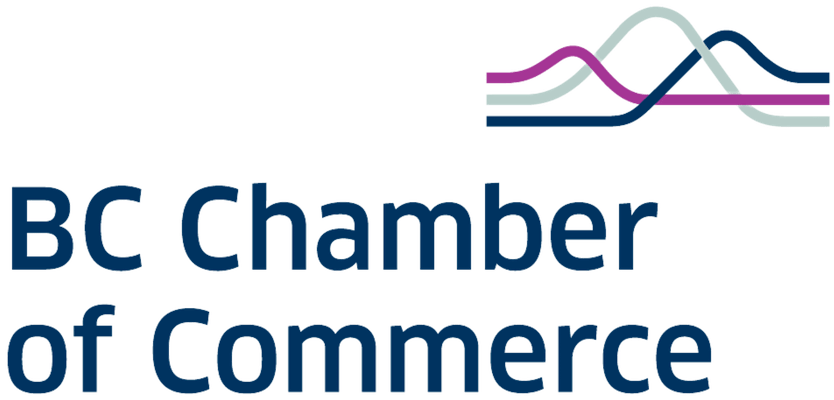- Home
- Policy Search
- BC LOBBYING ACT – IMPLICATIONS FOR NON-PROFITS, SMALLER ORGANIZATIONS, AND CHAMBERS / BOARDS OF TRADE (2024)
BC LOBBYING ACT – IMPLICATIONS FOR NON-PROFITS, SMALLER ORGANIZATIONS, AND CHAMBERS / BOARDS OF TRADE (2024)
Issue
The BC Government’s new Lobbyists Transparency Act (2020) (LTA) has placed a considerable burden on the not-for-profit sector and smaller organizations, including Chambers of Commerce and Boards of Trade. In addition, this legislation undermines the democratic process that enables organizations to advocate to government. It significantly constrains communications and collaboration with the government on the impact of key decisions and direction on regulations, law, policy and programming.
Resourcing and support must be considered in the context of the not-for-profit sector, recognizing that these are typically small organizations with additional burdens and differences related to organizational size and capacity for reporting compliance. Regarding Chambers of Commerce and Boards of Trade, their genesis was specifically to enable advocacy from SMEs to government and require an exemption to much of the LTA. Government relies on advocacy and research to inform themselves of different issues impacting the economy, and this Act decreases the ability of Chambers of Commerce and Boards of Trade to do that effectively, costing businesses and organizations time and money as additional resources are needed to follow the new administrative rules of the Act.
Businesses that now have to register their activities as lobbyists face financial costs, and it consumes their time. These costs prohibit many crucial organizations from participating in the democratic process by informing the government of issues.
Background
Environmental review processes were initially undertaken by the Federal Government in the Department of Fisheries and Oceans (DFO). To streamline the regulatory process, the position was terminated, and all environmental reviews for land were passed to the provincial Ministry of Forests, Lands, Natural Resource Operations and Rural Development (FLNRORD).
On May 4, 2020, significant changes to British Columbia’s lobbyist registration regime came into effect, with the latest reforms being both statutory and regulatory. BC’s Lobbyists Registration Amendment Act (2018) was passed on November 26, 2018. The same day, the BC government published the Lobbyists Registration Regulation 2018. The provisions of the Act and Regulation were to come into force on May 4, 2020. The previous legislation was transformed into the LTA in 2020 and the Lobbyist Transparency Regulation in 2020.
The LTA applies to communications with public office holders at the Provincial Government level. This includes[1]:
- a member of the Legislative Assembly (MLA) including members of cabinet;
- political staff of an MLA or a member of cabinet;
- an officer or employee of the government of British Columbia;
- a person who is appointed to any office or body by or with the approval of the Lieutenant Governor in Council, other than a person appointed on the recommendation of the Legislative Assembly;
- a person who is appointed to any office or body by or with the approval of a minister of the government of British Columbia; and
- an officer, director, or employee of any government corporation as defined in the Financial Administration Act.
The new Act and Regulation significantly altered BC’s lobbyist registration rules, summarized as follows:
- In-house lobbying immediately triggers a registration obligation
- Applies to an organization (such as a corporation, trade union, charity or a government other than the government of BC)
- The organization is required to file a return with the provincial Registrar of Lobbyists within ten days after any of the organization’s paid employees, officers, or directors has become an in-house lobbyist by lobbying a provincial public office holder. The obligation to file falls on the organization's most senior paid officer.
- The Act eliminated the 100-hour threshold to register only when an organization has collectively devoted at least 100 hours annually to provincial lobbying.
- An exemption exists for small businesses and non-profits to permit paid employees, officers, and directors of organizations with fewer than six employees to lobby without registration, provided the organization's lobbying activities totalled fewer than 50 hours in the preceding 12 months.
- The above exemption does not apply to organizations whose primary purposes are to represent the interests of its members or to promote or oppose issues, i.e. small industry associations and advocacy organizations, unless the lobbying in question is not for either purpose.
- Consultant Lobbyists will only need to register after they start to lobby.
- Only one registration will be required.
- Lobbyists and organizations will need to provide more detail about their lobbying activities.
- Monthly returns will be required.
- Gifts to public office holders will be banned, except for gifts under the protocol or social obligations that normally accompany duties and only to the extent that the total value of all such gifts in a 12-month period does not exceed $100.
- Greater Registrar Enforcement
- Penalties of up to $25,000 and the ability to impose a prohibition on lobbying and related activities of up to two years.
In addition to exceptions for smaller-sized organizations as defined above, certain written submissions are permitted, and nonpaid volunteers of organizations can engage in lobbying.
Lobbying is considered to take place when: Your organization is trying to influence government decisions about legislation, regulations, a program, policy, directive or guideline, the award of a contract, grant, or financial benefit, or another matter set out in the Act’s definition of “lobby.” The definition of “lobby,” subject to section 2(2) of the Lobby Transparency Act, means:
- to communicate with a public office holder in an attempt to influence
- the development of any legislative proposal by the government of British Columbia, a Provincial entity or a member of the Legislative Assembly,
- the introduction, amendment, passage or defeat of any Bill or resolution in or before the Legislative Assembly,
- the development or enactment of any regulation, including the enactment of a regulation for the purposes of amending or repealing a regulation,
- the development, establishment, amendment or termination of any program, policy, directive or guideline of the government of British Columbia or a Provincial entity,
- the awarding, amendment or termination of any contract, grant or financial benefit by or on behalf of the government of British Columbia or a Provincial entity,
- a decision by the Executive Council or a member of the Executive Council to transfer from the Crown for consideration all or part of, or any interest in or asset of, any business, enterprise or institution that provides goods or services to the Crown, a Provincial entity or the public, or
- a decision by the Executive Council or a member of the Executive Council to have the private sector instead of the Crown provide goods or services to the government of British Columbia or a Provincial entity to arrange a meeting between a public office holder and any other individual for the purpose of attempting to influence any of the matters referred to in paragraph (a) of this definition. [2]
Advocacy and Lobbying are essential to our society and the democratic process. They enable feedback from stakeholders, organizations, and institutions so that government can be responsive.
The not-for-profit sector and smaller organizations of all kinds (including membership and industry-based opposing issues) should not be obligated to the same level of expectation and burdensome regulations as organizations that are for profit, with bigger interests at stake, and/or larger in size with greater capacity.
Organizations of all sizes should also be considered based on whether they represent sectors or cross-sectors with a broader societal impact versus more narrowly focused company-centered interests.
Additionally, given the above bureaucratic expectation to track and register what would be seen as a major part of Chambers/Boards’ operational plan (and has been for over 421 years of Chamber history).
The ORL will review the legislation in 2025. We need to ensure that this review includes fulsome consultation and input from the not-for-profit sector and addresses the issue that this sector does not have the capacity to update its lobbyist registry every month for all interactions with the government.
THE CHAMBER RECOMMENDS
That the Provincial Government:
- As the ORL reviews the legislation, ensure that consultation and input from the not-for-profit sector is conducted and used to make the registry more effective and less onerous.
- Update the definition of “small organization” under the Lobbyists Transparency Act (2020) from six employees or less to 20 employees or less.
- Only require the registration of an actual act of lobbying (letter, meeting, policy decision) upon completion, increase the 50-hour threshold to 200-hours for charities and not-for-profits, and eliminate the requirement for Chambers of Commerce and Boards of Trade altogether.
- Establish a more streamlined lobbying tracking report form and process.
- Removing accumulated lobbying reporting requirements when working with other organizations.

